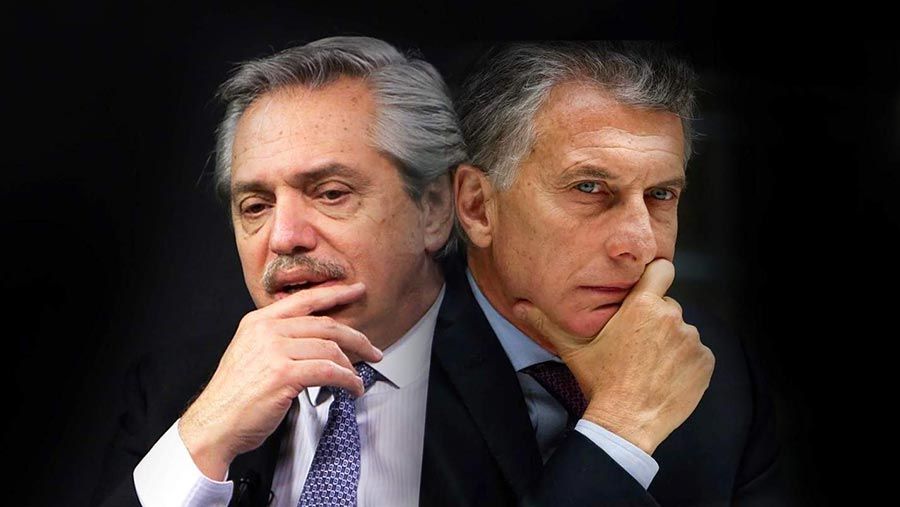RIO DE JANEIRO, BRAZIL – The president of Argentina, Alberto Fernández, criticized on Monday (6) the indebtedness generated during the government of his predecessor Mauricio Macri (2015-2019) and affirmed that it helped him to finish his term in 2019, in an exchange of political reproaches less than a week before the primary elections for the legislative positions.

“In his (Macri’s) essence is not valuing democracy, it is clear, nor valuing institutionality”, said Fernandez in statements to El Destape radio, just a few hours after Macri declared, to TN channel, that Fernandez “has destroyed the value of the presidential word” and that he is “a serial liar”.
The former President had also stated that Kirchnerism – a faction of the ruling party led by Vice-President and former President Cristina Fernández – “invents stories about the debt and the inheritance, which are lies”, and wished to have had in 2015 the inheritance that Fernández received from her Government in 2019.
In this regard, the current head of state told that he helped Macri to finish his mandate: “We helped him to get out, to get to December 10 (of 2019)” and “that every transition is respecting the rules”.
“SENSE OF RESPONSIBILITY”.
The president said that Macri asked him to help him in the transition between the primary elections and the general presidential elections of 2019 “to calm down the economy because it had gotten totally out of hand” and that when the cepo was established, the former president asked him to help him “stop the drain of the dollar”.
Fernández indicated that in her coalition “the sense of responsibility prevailed” because she had to choose between “showing him in front of society the disaster they had made” or “putting some order in the economy because those who suffer are the Argentines”.
FIRST ELECTIONS WITH FERNÁNDEZ AS PRESIDENT
Fernández, who began his mandate in December 2019, tests in the primaries of September 12 the approval of his administration, marked by the covid-19 pandemic and the economic crisis, as part of the ruling coalition Frente de Todos, which mainly faces the coalition Juntos por el Cambio, to which Macri belongs.
The ruling party is, to a large extent, concentrating its campaign on criticizing Macri’s administration and the economic inheritance received and between both sides they have been showing numbers on which government – from those of Néstor Kirchner (2003-2007) and Cristina Fernández (2007-2015) to the current one – has indebted the country more.
TWO COUNTRY MODELS
Fernández asked for the people’s vote explaining the differences between the two models of country offered by both coalitions and that “the central difference” is that his Government puts the focus on “work and production”, while he defended the quota on meat exports to curb price increases.
The Head of State recalled that in the face of a fiscal deficit problem in pesos, the Macri Government took a 100-year debt in dollars and asked the International Monetary Fund (IMF) for “a sideral sum” forcing Argentina to pay a level of surcharges that is three times the one charged by the IMF.
The president pointed out that between August and October 2019, between the primary elections and the presidential elections, in Macri’s government “they let escape” 23 billion dollars and that it was at that time that Macri called him to tell him that he was “going to install the (exchange) cepo,” which are the restrictions to individuals to access the exchange market.
In this Sunday’s interview, Macri had defended the credit that his administration received from the IMF: “The Fund came and the money did not escape, which is another lie, it was for the repayment of the debts that were maturing.”

